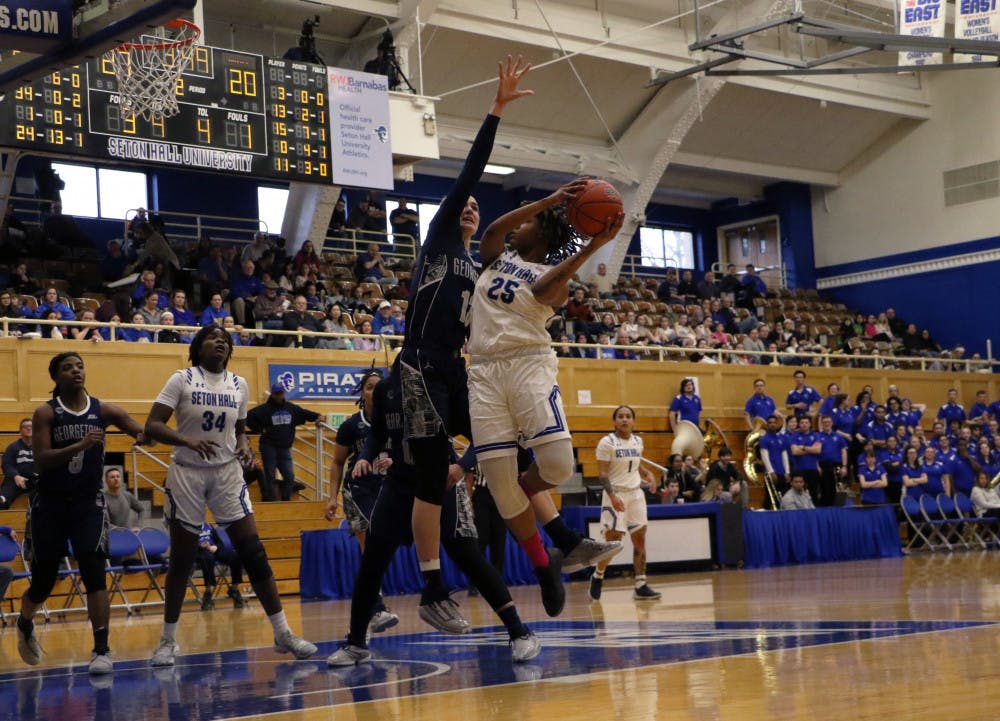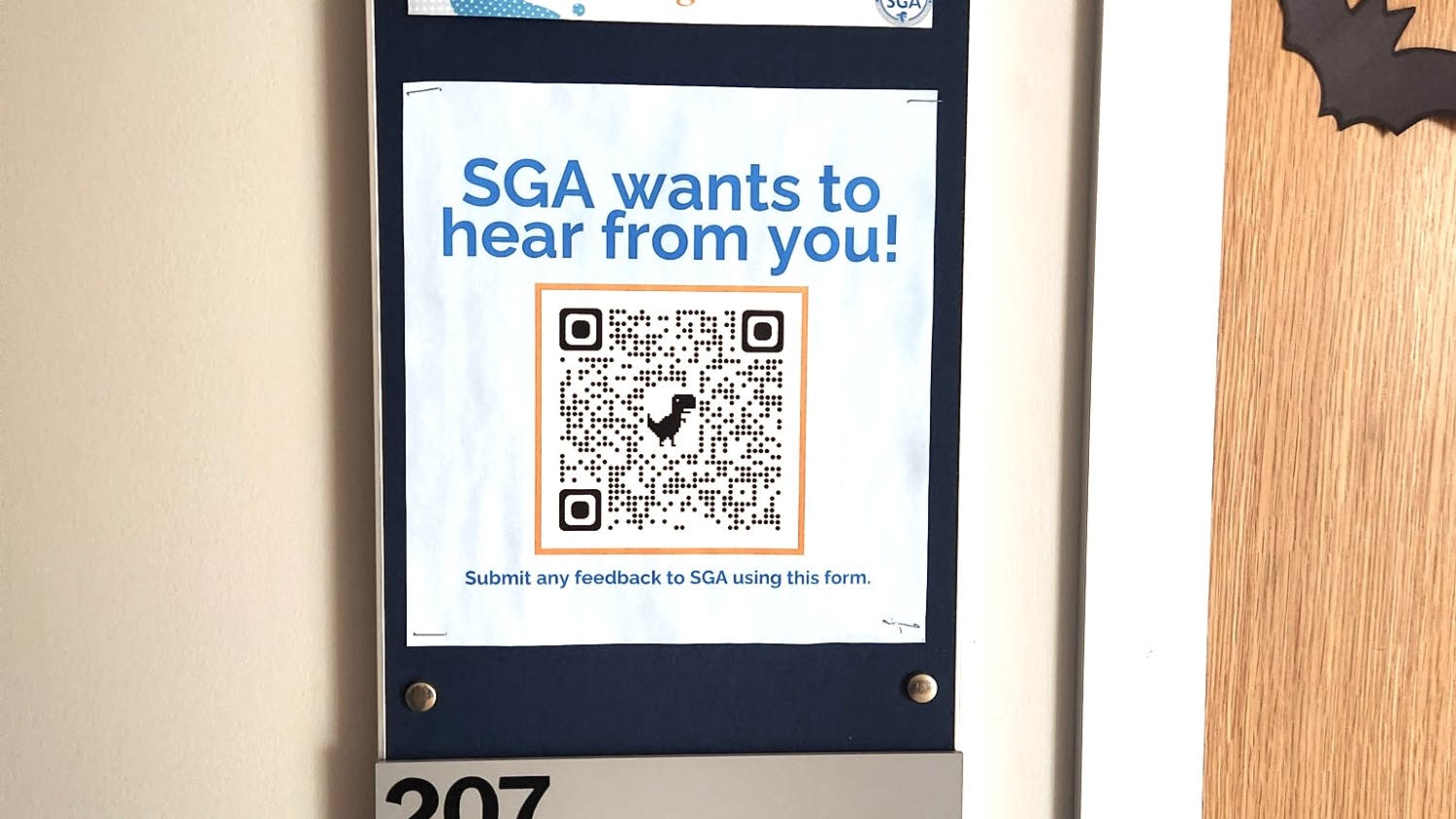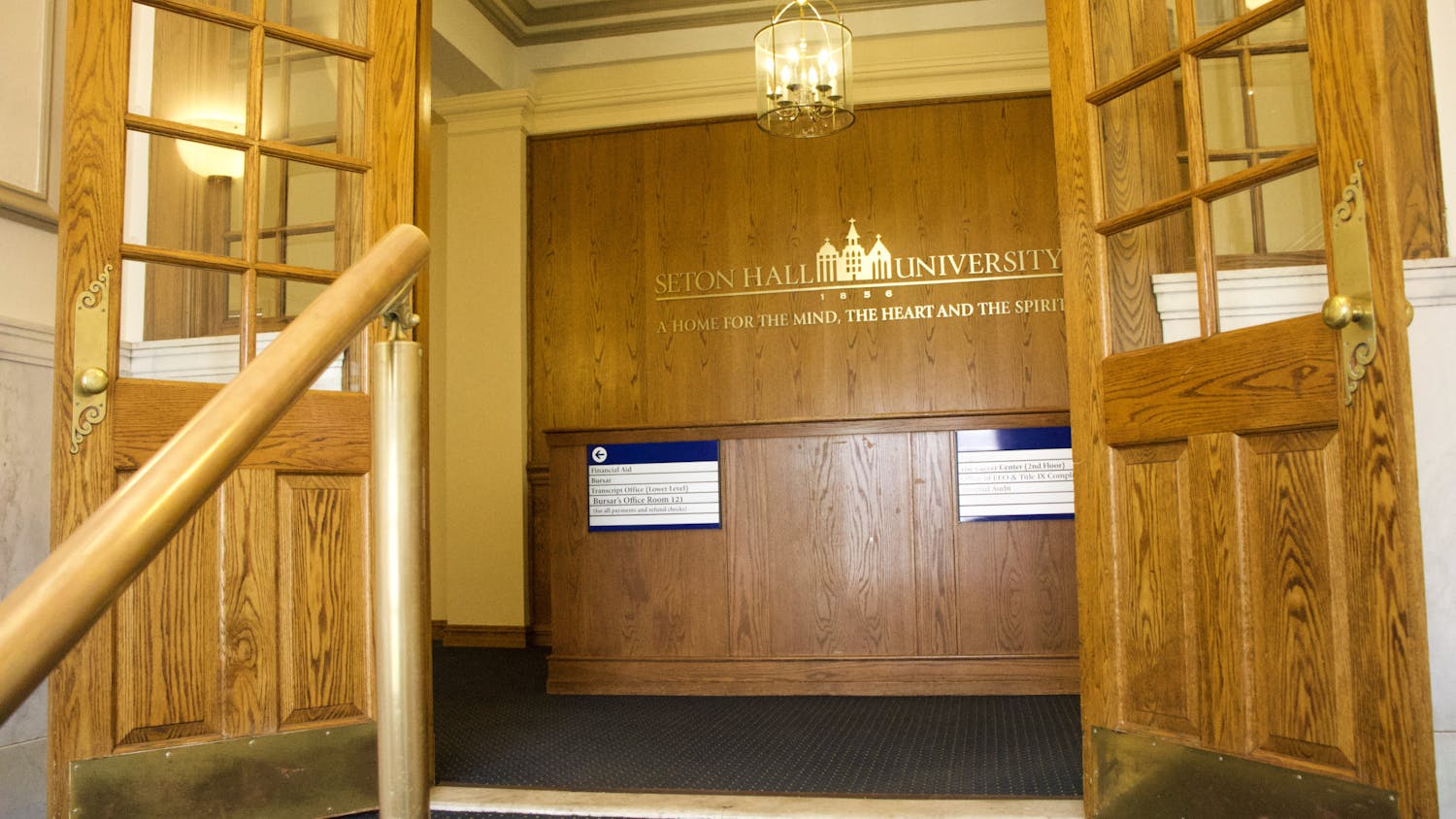[caption id="" align="alignnone" width="334"] shu.edu[/caption]
The Office of the Provost has approved funding for the Digital Humanities Program, which will offer faculty the opportunity to research and enhance undergraduate humanities studies for students.
“The DH scholarship explores traditional areas of humanities through the application of new technologies, as well as applying traditional humanities-oriented questions to emerging technologies in society,” said Marta Deyrup, co-head of Technical Services for Seton Hall University Libraries.
Faculty can apply for money (grants will be provided by the Provost budget) to fund research projects. These research projects will focus on how new technology can be applied in course syllabi to assist students in learning traditional humanities subjects.
Deyrup said seven faculty members have presented topics that will be considered for the fellowship given by the Provost. Topics include Amanda Mita and Veronica Armour on “Developing a Digital Humanities Project: An Interactive Timeline”, Karen Gevirtz on “Undergraduate Research, Dead People, and the Virtual Museum”, Petra Chu on “Digital Humanities: Scholarship and Publishing”, Martha Carpentier and Mary Balkun on “Creating a Study-Abroad Student Blog”, and William Connell on “Renaissance Republicanism at Work: Digitizing the Deliberations of the Florentine Councils, 1350-1530.”
The program is scheduled to give the faculty fellows funding from Feb. 1 to Aug. 26, 2016.
In an article entitled, “Should Liberal Arts Campuses Do Digital Humanities? Process and Products in the Small College World,” authors Bryan Alexander and Rebecca Frost Davis said in the 2012 edition of Debates in the Digital Humanities, “the liberal arts sector (had) apparently played little role in the digital humanities movement."
Seton Hall University is striving to be one of the colleges with a DH program, but is not the first liberal arts school to begin the implementation of a DH program. In a National Institute for Technology in Liberal Education (NITLE) document, Davis, Hamilton College, Occidental College, and Wheaton College are all schools listed as having some form of DH related programs.
SHU students can benefit from both the DH research projects and the execution of the DH faculty's work in SHU classes and course syllabi.
Deyrup said that students could get internships in the Special Collections Center in the University Archives and work to describe and digitize rare materials. Furthermore students can collaborate with faculty on research projects this upcoming spring.
“Having these skills should give students an advantage in applying for jobs in traditional ‘humanities’ professions,” Deyrup said. “It will enable them to do cutting-edge humanities research using tools that didn’t exist ten years ago.”
Ryanne Boyer, a junior journalism major, said the initiative was a great idea. “It’s another skill that you can put down on a resume and present to the real world. Everyone can do a PowerPoint, but DH is new,” she said.
Avery Araya, freshman athletic training and psychology major, said that not only would DH projects in class make the course more interesting, but also would motivate him to work harder. “I think because I would be more interested, I would put more time into my presentation and really put effort into it,” he said.
Alexandra Gale can be reached at alexandra.gale@student.shu.edu
shu.edu[/caption]
The Office of the Provost has approved funding for the Digital Humanities Program, which will offer faculty the opportunity to research and enhance undergraduate humanities studies for students.
“The DH scholarship explores traditional areas of humanities through the application of new technologies, as well as applying traditional humanities-oriented questions to emerging technologies in society,” said Marta Deyrup, co-head of Technical Services for Seton Hall University Libraries.
Faculty can apply for money (grants will be provided by the Provost budget) to fund research projects. These research projects will focus on how new technology can be applied in course syllabi to assist students in learning traditional humanities subjects.
Deyrup said seven faculty members have presented topics that will be considered for the fellowship given by the Provost. Topics include Amanda Mita and Veronica Armour on “Developing a Digital Humanities Project: An Interactive Timeline”, Karen Gevirtz on “Undergraduate Research, Dead People, and the Virtual Museum”, Petra Chu on “Digital Humanities: Scholarship and Publishing”, Martha Carpentier and Mary Balkun on “Creating a Study-Abroad Student Blog”, and William Connell on “Renaissance Republicanism at Work: Digitizing the Deliberations of the Florentine Councils, 1350-1530.”
The program is scheduled to give the faculty fellows funding from Feb. 1 to Aug. 26, 2016.
In an article entitled, “Should Liberal Arts Campuses Do Digital Humanities? Process and Products in the Small College World,” authors Bryan Alexander and Rebecca Frost Davis said in the 2012 edition of Debates in the Digital Humanities, “the liberal arts sector (had) apparently played little role in the digital humanities movement."
Seton Hall University is striving to be one of the colleges with a DH program, but is not the first liberal arts school to begin the implementation of a DH program. In a National Institute for Technology in Liberal Education (NITLE) document, Davis, Hamilton College, Occidental College, and Wheaton College are all schools listed as having some form of DH related programs.
SHU students can benefit from both the DH research projects and the execution of the DH faculty's work in SHU classes and course syllabi.
Deyrup said that students could get internships in the Special Collections Center in the University Archives and work to describe and digitize rare materials. Furthermore students can collaborate with faculty on research projects this upcoming spring.
“Having these skills should give students an advantage in applying for jobs in traditional ‘humanities’ professions,” Deyrup said. “It will enable them to do cutting-edge humanities research using tools that didn’t exist ten years ago.”
Ryanne Boyer, a junior journalism major, said the initiative was a great idea. “It’s another skill that you can put down on a resume and present to the real world. Everyone can do a PowerPoint, but DH is new,” she said.
Avery Araya, freshman athletic training and psychology major, said that not only would DH projects in class make the course more interesting, but also would motivate him to work harder. “I think because I would be more interested, I would put more time into my presentation and really put effort into it,” he said.
Alexandra Gale can be reached at alexandra.gale@student.shu.edu





